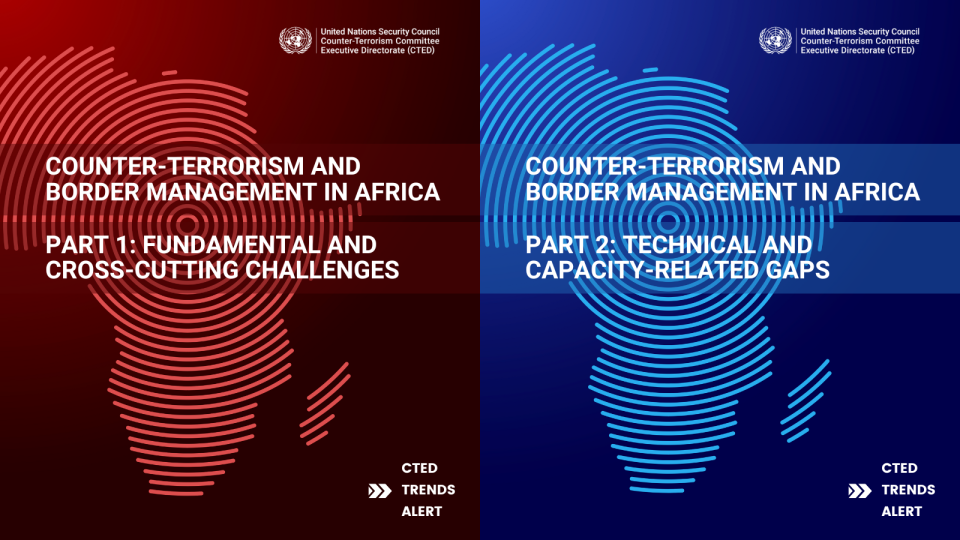
Despite the efforts of Member States in Africa to strengthen border security, a number of countries continue to face challenges. With terrorism and violent extremism spreading across parts of the African continent, including through the movement of foreign terrorist fighters, the United Nations Security Council has emphasized the need for stronger border security and management.
Between 2018 and 2023, CTED conducted assessment visits on behalf of the Counter-Terrorism Committee in 15 African Member States: Benin, Burkina Faso, Côte d’Ivoire, the Democratic Republic of the Congo, Equatorial Guinea, Ghana, Mali, Morocco, Mozambique, Niger, Nigeria, South Africa, Sudan, Togo, and Uganda.
These, and other assessment visits, offer an essential tool for the Counter-Terrorism Committee to remain in open dialogue with Member States, particularly as terrorism threats evolve. The Counter-Terrorism Executive Directorate (CTED) conducts these visits on the Committee’s behalf to assess Member States’ counter-terrorism efforts, including progress made, remaining shortfalls, and priority areas for technical assistance needs, as well as to identify terrorism-related trends and challenges and good practices employed in the implementation of relevant Security Council resolutions.
Based on the reports from these 15 assessment visits CTED today published two new interlinked Trends Alerts, each summarizing key challenges and recommendations related to border management in Africa.
Part 1: Fundamental and cross-cutting challenges
The first Trends Alert, “Counter-Terrorism and Border Management in Africa: Fundamental and cross-cutting challenges”, highlights the foundational issues affecting the management of borders in the context of counter-terrorism.
The Trends Alert also outlines a series of common challenges facing Member States. This includes knowledge gaps on migration patterns, security threats, trends and vulnerabilities; the physical features of border posts and offices; governance challenges; broader socioeconomic conditions; the management of national civil databases; and the issuance of visas and admittance of foreign nationals.
Among the Trends Alert's main findings is the need for an integrated approach to border security and management that takes into account local communities and addresses the underlying causes of violent extremism that encourage terrorism. Another is that effective border governance entails enhancing the socioeconomic circumstances of those who reside in the communities that surround borders.
Part 2: Technical and capacity-related gaps
The second Trends Alert, “Counter-Terrorism and Border Management in Africa: Technical and capacity-related gaps”, finds the need for Member States to invest more in technology and infrastructure; training for border security personnel; inter-agency coordination; and enhanced regional cooperation. The Trends Alert meanwhile notes that effective border management requires a strategy setting out roles and responsibilities for each agency involved. International cooperation and partnerships, including with the private sector, are also highlighted for the crucial role they can play in strengthening border security in Africa.
The publication discusses a range of challenges, including electricity and communications technology at border posts and offices; technical skills and capacity to detect and investigate illicit cross-border activity; national and cross-border institutional arrangements in border security; the lack of border management strategies and action plans; and access to and interoperability of traveler information databases in real time for screening.
Common recommendations
Both Trends Alerts summarize the most common recommendations, which the Counter-Terrorism Committee has made to Member States on border management. The Trends Alerts outline that the Committee requests that Member States develop and implement all counter-terrorism measures in a manner that fulfils their obligations under international law, including human rights and refugee law.
Additional information:
Trends Alert: Counter-Terrorism and Border Management in Africa

